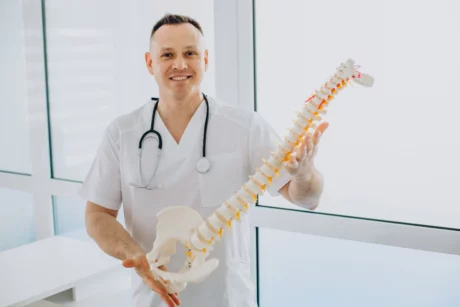People with complex post-traumatic stress disorder or C-PTSD have a very difficult time with emotions. They struggle to control, experience, comprehend or even label emotions. Many have unmanaged or persistent sadness, either explosive or inaccessible anger, and/or suicidal thoughts.
The purpose of this Advanced Training for Trauma Treatment of Complex PTSD course is to teach and inform you about how to effectively treat those challenging clients with C-PTSD. The course provides you with a comprehensive presentation of clinical skills for screening/assessing, stabilising, skills-building, and treating complex post-traumatic stress in all its challenging presentations.
This course focuses on a tri-phasic model and from it, you’ll learn how to adjust treatment to make the process as comfortable and crises-free as possible, while also accelerating the results of the treatment.
A balance of current evidence/science-based interventions and protocols are provided in this course, paired with experiential practice wisdom from clinicians who have successfully worked with patients for decades.
After completing this course, you’ll discover a newfound sense of competency and excitement for working with patients who have totally bewildered and perplexed clinical experts.
And you’ll also gain skills in preparing, assessing, planning and relationship building.
If all this sounds interesting to you. And you want to learn more about mental health then enrol now!
Course Highlights
From this course, you’ll :
- Learn the differences between simple and complex PTSD (C-PTSD) and identify the distinct challenges for diagnosis, treatment planning, stabilisation and treatment of C-PTSD.
- Understand the neurobiology of C-PTSD and how chronic exposure to threatening environments can produce the spectrum of symptoms of C-PTSD
- Know the role that attachment trauma and Adverse Childhood Experiences (ACEs) play in risk for and creation of C-PTSD, and how successfully addressing attachment issues can accelerate treatment for C-PTSD.
- Learn the causes of attachment trauma (e.g., relational threat/anxious attachment; avoidant attachment; disorganised attachment) and how these adaptations are easily misunderstood as personality disorders.
- Learn the importance of neuroplasticity/pruning and understanding neuronal sequencing (i.e., “neural networks”) in treating C-PTSD and all post-traumatic conditions.
- Understand the important role that conditioned threat response and subsequent ANS dysregulation play in generating and sustaining the symptoms of all post-traumatic conditions including C-PTSD.
- Gain knowledge about the science and applicability of Porges’ Polyvagal Theory to treatment with C-PTSD; specifically the importance of developing and utilising healthy attachment relationships to augment treatment.
- Articulate and explain how dissociation symptoms (e.g., numbing; derealization; depersonalisation; hearing “voices”; fractured multiple ego-states; dissociative identity) are adaptations to recurring (usually developmental) trauma.
- Identify evidence-based pharmacological interventions for stabilisation and treatment for clients with C-PTSD.
- Apply Herman’s Tri-Phasic Model to conceptualisation, titration and delivery of treatment for C- PTSD.
- Identify specific assessment and treatment tasks for each of the three phases of the Tri-Phasic Model.
- Understand symptoms of C-PTSD as adaptations to ongoing developmental trauma that can include extreme symptoms including self-injury; suicide; dissociation; numbing; addiction (process and substance); eating disordered behaviour; chronic & intractable depression; hyper/hypo sexuality; and rage.
- Articulate the role of crucial non-specific factors of positive expectancy and therapeutic relationship using Feedback Informed Therapy (FIT) as the central focus of treatment with C-PTSD.
- Learn and implement the four “common factors/active ingredients” shared by all effective trauma therapies for clients with C-PTSD.
Skills you’ll gain:
- Master self-regulation of ANS dysregulation (i.e., anxiety) for clinician resilience and optimisation of treatment delivery.
- Become intentional with maximising positive expectancy as a crucial early treatment intervention for engagement and ongoing intervention to enhance outcomes.
- Develop understanding and usage of various assessment tools
- First-session Interventions to enhance safety, stabilisation, positive expectancy and therapeutic relationship
- Skilled implementation of Feedback Informed Therapy using Miller’s Session Rating Scale
- And many more
The Advanced Training for Trauma Treatment of Complex PTSD course is an award-winning and best-selling course that has been awarded CPD Certification & IAO accreditation. It is the most suitable course for anyone looking to work in this industry or relevant sector.
It is considered one of the most popular courses in the UK for learners to get familiar with the topic and gain the necessary skills to perform well in this field. We have structured the Advanced Training for Trauma Treatment of Complex PTSD course into several modules for teaching you everything you need to know to become successful in this field.
To provide you with ease of access, this course is designed for both part-time and full-time students. You can become accredited in just 20/30 hours and it is also possible to study at your own pace.
We have experienced tutors who will help you throughout the comprehensive syllabus of this course and answer all your queries through email.
Who Is This Course For?
This Advanced Training for Trauma Treatment of Complex PTSD course is for those who want to know about Mental health, it’s also good for teachers, child-protective agency workers, foster parents, and people with similar professions.
Requirements
This course requires no qualifications and is great for you if you want to know about mental health and want to help people suffering from complex PTSD.
Our Advanced Training for Trauma Treatment of Complex PTSD course is fully compatible with any kind of device. Whether you are using a Windows computer, Mac, smartphone or tablet, you will get the same experience while learning. Besides that, you will be able to access the course with any kind of internet connection from anywhere at any time, without any kind of limitation.
Career Path
You will be ready to enter the relevant job market after completing this course and will be equipped with the necessary knowledge and skills required to succeed in this sector. All of our courses are CPD accredited, so you will be able to stand out in the crowd by adding our qualifications to your CV and Resume.
Course Curriculum
| Advanced Training for Trauma Treatment of Complex PTSD | |||
| Module 1: Introduction to Advanced Training for Trauma Treatment of Complex PTSD | FREE | 00:55:00 | |
| Module 2: Foundation and Knowledge | 01:00:00 | ||
| Module 3: Symptoms of C-PTSD | 01:00:00 | ||
| Module 4: Neurobiology of C-PTSD | 01:00:00 | ||
| Module 5: Stress Response and Stages of Traumatic Response | 01:01:00 | ||
| Module 6: Deliberate Practice | 01:00:00 | ||
| Module 7: Self-Regulation and Co-Regulation | 01:00:00 | ||
| Module 8: Introduction to Active Ingredients | 01:00:00 | ||
| Module 9: Empowerment and Resilience Treatment Structure – Stage I: Preparation | 01:00:00 | ||
| Module 10: Empowerment and Resilience Treatment Structure – Stage II: Psychoeduc | 01:00:00 | ||
| Module 11: Graphic Timeline | 01:00:00 | ||
| Module 12: Skills Development – Relaxation | 01:01:00 | ||
| Module 13: Skills Development – Grounding | 01:00:00 | ||
| Module 14. Skills Development – Conclusion and Regression | 01:08:00 | ||
| Module 15: Forward Facing Trauma Therapy (FFTT) | 01:00:00 | ||
| Module 16: Therapist Driven Treatments | 01:04:00 | ||












